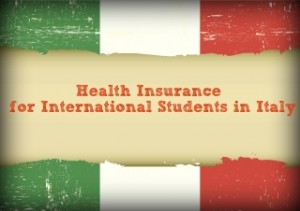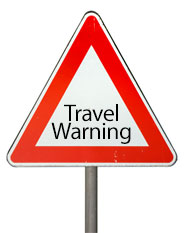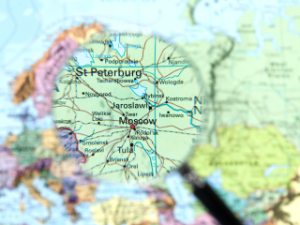 If you’re planning on studying in Italy you more than likely already know that it’s a country that offers a number of top notch educational institutions for students to choose to study at. With its deep history and large amount of museums- it provides the perfect backdrop for an international education. If you’re going to study in Italy, it’s important to know that you will need one of two types of visas:
If you’re planning on studying in Italy you more than likely already know that it’s a country that offers a number of top notch educational institutions for students to choose to study at. With its deep history and large amount of museums- it provides the perfect backdrop for an international education. If you’re going to study in Italy, it’s important to know that you will need one of two types of visas:
In either case you will need to purchase international health insurance for your time as a student in order to get the visa you need. As an international student inside of Italy, you are able to use your school’s group insurance plan from your home country if it will work for you internationally. Alternatively, you can purchase an individual health insurance plan that will meet your international health needs.
When looking for coverage, there are a few items that you will want to make sure your health insurance for international students in Italy includes, and those are the following items: emergency medical evacuation, repatriation of remains, doctor’s visits and hospitalization.
A few plans that offer these benefits along with a number of other benefits include the following:
To get more information on health insurance for international students in Italy and available plan options you can visit here.

May 2014 Travel Warnings
The May 2014 travel warnings are a listing of any warnings that have been posted by the US Department of State in the month of April, warning travelers who plan to visit those countries.
Countries listed through the month of April 2014 include:
Cameroon – April 25th, 2014
The Department of State warns of the risk of travel to Cameroon and cautions travelers to avoid all travel to the Far North region of Cameroon. The Boko Haram terrorist group is active in the Far North, and has actively targeted foreign expatriates resident in Cameroon and tourists. Eleven expatriates have been kidnapped since 2013. The most recent kidnapping was on April 4, 2014, when attackers kidnapped two Italian priests and a Canadian nun during the night from their residences in Tchere, near the city of Maroua, located approximately 60 kilometers from the Nigerian border. A French priest was kidnapped from the town of Nguetchewe in November 2013, and a French family of seven (three adults and four children) was kidnapped while traveling near Waza National Park in February 2013. Boko Haram and an affiliated group, Ansaru, were responsible for the kidnappings of the French victims, and are believed to be responsible for the latest kidnappings in April 2014. Boko Haram’s leaders have stated and demonstrated through their actions over the past year that they are actively seeking to kidnap “Westerners” and U.S. citizens traveling to or living in the Far North and North regions of Cameroon.
Democratic Republic of Congo – April 23rd, 2014
The Department of State warns of the risks of traveling to the Democratic Republic of the Congo (Congo-Kinshasa) (DRC). The Department recommends U.S. citizens avoid all but essential travel to the provinces of North Kivu and South Kivu and the Ituri region in the province of Orientale. With ongoing instability and violence in North and South Kivu, northeastern Orientale, and northern and central Katanga province, the Department’s ability to provide consular services to U.S. citizens in these regions of the DRC is extremely limited.
Republic of South Sudan – April 23rd, 2014
The U.S. Department of State warns against all travel to the Republic of South Sudan and recommends that U.S. citizens currently in South Sudan depart immediately. As a result of the deteriorating security situation, the Department of State ordered the departure of most remaining U.S. government personnel from South Sudan on January 3, 2014. The U.S. Embassy is therefore only able to offer very limited emergency services to U.S. citizens in the Republic of South Sudan.
Ukraine – April 16th, 2014
The Department of State warns travelers to defer all non-essential travel to Ukraine. In addition, the Department of State warns U.S. citizens to defer all travel to several regions of Ukraine, including the Crimean Peninsula and eastern regions of Kharkiv, Donetsk, and Lugansk due to the presence of Russian military forces in the Crimean Peninsula and on the eastern border of Ukraine. Russian forces have occupied the Crimean Peninsula in support of the Russian Federation’s claim of Crimean annexation and these forces are likely to continue to take further actions in the Crimean Peninsula consistent with its claim.
Chad – April 15th, 2014
The Department of State warns of the risks of travel to Chad and recommends citizens avoid travel to eastern Chad and border regions. Travelers should be particularly vigilant when visiting hotels, restaurants, markets, and easily accessible public areas that expatriates and foreign travelers frequent. While there are presently no known specific threats against U.S. citizens in Chad, there are violent extremist organizations in the region, such as Boko Haram and al-Qai’da in the Lands of the Islamic Maghreb (AQIM), who are intent on harming westerners and western interests and are able to cross borders easily.
Colombia – April 14th, 2014
The Department of State has issued this Travel Warning to inform travelers about the security situation in Colombia. Tens of thousands of U.S. citizens safely visit Colombia each year for tourism, business, university studies, and volunteer work. Security in Colombia has improved significantly in recent years, including in tourist and business travel destinations such as Bogota and Cartagena, but violence linked to narco-trafficking continues to affect some rural areas and parts of large cities.
Sudan – April 10th, 2014
The Department of State warns of the risks of traveling to Sudan, urging U.S. citizens to avoid all travel to the Darfur region of Sudan, the Blue Nile and Southern Kordofan states, and advises you to consider carefully the risks of travel in other areas of Sudan. While the Government of Sudan has taken some steps to limit the activities of terrorist groups, elements of these groups remain in Sudan and have threatened to attack Western interests. Terrorist actions may include suicide operations, bombings, or kidnappings.
Kenya – April 4th, 2014
The U.S. Department of State warns of the risks of travel to Kenya. International Citizens in Kenya, and those considering travel to Kenya, should evaluate their personal security situation in light of continuing and recently heightened threats from terrorism and the high rate of violent crime in some areas. The U.S. government continues to receive information about potential terrorist threats aimed at U.S., Western, and Kenyan interests in Kenya, including in the Nairobi area and in the coastal cities of Mombasa and Diani. Terrorist acts can include suicide operations, bombings – to include car bombings – kidnappings, attacks on civil aviation, and attacks on maritime vessels in or near Kenyan ports.
Burundi – April 3rd, 2014
The Department of State warns of the risks of traveling to Burundi because Burundi participates in peacekeeping operations in Somalia, the terrorist organization al-Shabaab, based in Somalia, has threatened to conduct terror attacks in Burundi. It may also target U.S. interests in Burundi.
While traveling, please keep these travel warnings in mind and remember to exercise extra care if you are visiting these countries, and check with your travel insurance provider to make sure you still have coverage in place – sometimes some benefits can be excluded for countries under a travel warning. Travelers are also advised to enroll through the U.S. Department of State’s Smart Traveler Enrollment Program (STEP) to stay up to date on travel security information.
![]() Finding a health insurance plan that meets your needs and wallet isn’t easy. With so many options and difficult jargon, how is anyone suppose to figure out which plan is right for them? If you will be studying outside your home country, it’s important that you find an insurance plan that is suited to your international needs. There are some must-have benefits for all travelers, and other benefits that may be unique to your health needs. To help you through this process, we’ve put together 5 tips on how to compare insurance plans to narrow down your options and figure out which plan is best for you.
Finding a health insurance plan that meets your needs and wallet isn’t easy. With so many options and difficult jargon, how is anyone suppose to figure out which plan is right for them? If you will be studying outside your home country, it’s important that you find an insurance plan that is suited to your international needs. There are some must-have benefits for all travelers, and other benefits that may be unique to your health needs. To help you through this process, we’ve put together 5 tips on how to compare insurance plans to narrow down your options and figure out which plan is best for you.
These questions are important so that you know the process, what to expect, and how long it can take before you get reimbursed. Be sure to ask these questions prior to purchasing the plan and make sure the process will work for you.
Want to learn more about comparing health insurance plan options? Read our article on Evaluating Student Insurance Plans so that you are prepared for anything that comes your way while overseas.
 Students studying abroad in Russia get to experience one of the most exotic, vast countries in the world. While the size of Russia alone is outstanding, the cultural diversity and educational advantages of this special country are many. But venturing into the unknown comes with increased risks. The change in climate and exposure to new things can cause illnesses and home-sickness. Injuries can happen unexpectedly whenever you’re in a new place, traveling and living the Russian life. With so many uncertainties, insurance is vital to your study abroad success!
Students studying abroad in Russia get to experience one of the most exotic, vast countries in the world. While the size of Russia alone is outstanding, the cultural diversity and educational advantages of this special country are many. But venturing into the unknown comes with increased risks. The change in climate and exposure to new things can cause illnesses and home-sickness. Injuries can happen unexpectedly whenever you’re in a new place, traveling and living the Russian life. With so many uncertainties, insurance is vital to your study abroad success!
“Oh no! Is Russia dangerous?”
Despite the cold, Russia might not be any more of a risk to your health than any other country you would travel to. However, there are additionally considerations to be mindful of. International students should consider purchasing medical insurance that covers both medical care and emergency medical evacuation for their study abroad in Russia. Because Russia is so huge, the quality of Russian medical care varies throughout the country. Emergency Medical Evacuation is sometimes the only option to receive proper care for your medical situation, since it covers the cost of transportation to the nearest capable medical facility.
“Am I required to have insurance when I go to Russia?”
Insurance is not only an advisable precaution to take, it is also required for some nationalities. Using the principle of reciprocity, medical insurance is required for citizens of a country that requires medical insurance from Russian citizens entering their own country. You should visit your particular Russian Consulate or Embassy to determine what insurance requirements apply to you.
“Which insurance plans will meet my needs in Russia?”
Although your insurance requirements may differ depending on where you’re from, there are a couple plans that meet the needs of most people – the Europe Travel plan and the Atlas Travel plan. Both of these plans will cover you in case of injuries or illnesses while in Russia, as well as Emergency Medical Evacuation. For more information about health insurance in Russia and appropriate insurance plans, check out our Russia Student Insurance page.
 If you are an international student, you may be confused about how the Patient Protection and Affordable Care Act applies to you. Also known as PPACA, ACA, or ObamaCare, this legislation can be confusing, especially as much of the information out there doesn’t directly speak to international students. To help you on your way, here’s an overview of how the ACA applies to you:
If you are an international student, you may be confused about how the Patient Protection and Affordable Care Act applies to you. Also known as PPACA, ACA, or ObamaCare, this legislation can be confusing, especially as much of the information out there doesn’t directly speak to international students. To help you on your way, here’s an overview of how the ACA applies to you:
International Students Are Exempt from the ACA
Good news is here! All international students holding a F, J, Q and M visa are exempt from the individual mandate for the first 5 calendar years that they are in the US. This means that whether you are an international student or even if you are on OPT, you can choose the most suitable health insurance policy that meets both your individual needs and budget – without having to worry about any penalty.
What This Means For You
Many health insurance plans that meet the ACA minimum essential health benefits are often not appropriate for the needs of foreign students. They are designed with US citizens in mind, offering long-term care without medical evacuation and repatriation benefits – not to mention they come with an expensive price tag and large out of pocket costs.
International students can purchase a comprehensive health insurance plan that is tailored to address their needs including:
Insurance Options That Meet Your Needs
Our Student Secure plan is an excellent option for international students with three levels to choose the plan that works best for your specific needs. Check our School Requirements to see if our plan will work for your institution.
Want to learn more about the Affordable Care Act? Read our latest article on the Impacts of the ACA on International Students.
 Getting into an automobile accident doesn’t usually work its way into daydreams about travels abroad. However, car accidents do happen- and quite frequently. Approximately 1.24 million deaths occurred worldwide in 2010 due to road traffic accidents according to the World Health Organization (WHO).
Getting into an automobile accident doesn’t usually work its way into daydreams about travels abroad. However, car accidents do happen- and quite frequently. Approximately 1.24 million deaths occurred worldwide in 2010 due to road traffic accidents according to the World Health Organization (WHO).
While you can skip including automobile accidents into your daydreams- you do need to include it in your items to be prepared for…just in case. Having international health insurance can provide you with protection if an automobile accident were to occur while abroad. Here are just a few ways that it can protect you.
Emergency Medical Evacuation: Not every medical facility is able to handle every injury. Because of this this, emergency medical evacuation is sometimes necessary. If you are at a facility that isn’t able to provide you with the treatment you need after a car accident, or if your accident occurs in a remote location, an evacuation will quickly take you where to need to be to get the treatment you need. Evacuations can save your life, but can also be extremely expensive- make sure your international health insurance plan includes emergency medical evacuation.
Urgent Care: Depending on the severity of your car accident- it could land you in urgent care which can quickly rack up high medical bills. Urgent care coverage gives you treatment that your life depends on and that your wallet will be pleased with.
Dismemberment: If an accident leaves you with the loss of eye sight or a limb it will require you to have a period of adjustment and more than likely multiple medical treatments to come. A plan that has dismemberment coverage can help offset this burden.
Repatriation of Remains: If your accident is fatal, this will ensure that your remains are able to safely return home, and your family will not be faced with the heavy financial responsibility of getting you there.
Liability: Some international health insurance plans also include liability which is helpful in the instance of a car accident. Liability may include personal liability- injury to a third person, damage to a third person’s property, or both. If you want a plan that includes liability if a car accident were to occur make sure to check out the exclusions of the plan and that liability in the instance of a car accident is not excluded.
Keeping these items in mind, then checking out what your plan includes in relation to these benefits should allow you to stop asking yourself about “automobile accidents and how my international health insurance works.”
 Japan has become a popular destination for international students and it’s no surprise. Japanese educational institutions offer high education standards as well as affordable tuition. Like all people studying internationally, you will want to consider your health insurance options while you are in Japan. Your options differ depending on the longevity of your stay. Here is a breakdown of insurance alternatives for international students in Japan.
Japan has become a popular destination for international students and it’s no surprise. Japanese educational institutions offer high education standards as well as affordable tuition. Like all people studying internationally, you will want to consider your health insurance options while you are in Japan. Your options differ depending on the longevity of your stay. Here is a breakdown of insurance alternatives for international students in Japan.
If you’re staying for 1 year or more…
If you’re staying for more than year you will be required to enroll in Japan’s National Health Insurance upon arrival. You’ll enroll with your Alien Registration Card and the coverage is free. The Japanese National Health plan generally covers 70% of medical costs, leaving you responsible for the remaining 30% of your medical costs, which you’ll need to pay out of your own pocket. Additionally, the national coverage is not all-inclusive – meaning that some cases, like private medical treatment, emergency medical evacuation, and trip interruption, are excluded from coverage.
In a situation like this, international students in Japan should purchase an additional, secondary insurance policy to be sure you have adequate coverage while you are in a foreign place. As a full-time international student or scholar you are eligible for the International Student Insurance plan and you can renew it for up to 4 years while you are a student. If you change your visa status or plan on being in Japan for longer than 4 years, also consider our Major Medical plan, which can cover you worldwide with no student requirement.
If you’re staying for 1 year or less…
If you’re studying in or visiting Japan for less than 1 year you are not required to enroll in the National Health Insurance. You should consider purchasing a student or travel insurance plan to protect you in case you become ill or injured. Our popular International Student Insurance and Travel Medical plans are both good options for a short study abroad.
For more information, check out our “Japan Student Insurance” resource.
 Although violence against women is higher in some countries than others- an attack can happen anywhere around the world when traveling. While this doesn’t mean that females should avoid travel or be restricted to traveling with a partner, it does mean that being a smart female traveler can save your life. Here are a few top tips when traveling alone as a female to keep you safe.
Although violence against women is higher in some countries than others- an attack can happen anywhere around the world when traveling. While this doesn’t mean that females should avoid travel or be restricted to traveling with a partner, it does mean that being a smart female traveler can save your life. Here are a few top tips when traveling alone as a female to keep you safe.
It’s important to stay safe but not allow fear of the unknown to ruin your trip. Simply follow these top tips when traveling alone as a female and listen to your gut instinct to help ensure you come back safe and sound from your journey.

April 2014 Travel Warnings
The April 2014 travel warnings are a listing of any warnings that have been posted by the US Department of State in the month of March, warning travelers who plan to visit those countries.
Countries listed through the month of March 2014 include:
Niger – March 27th 2014
The Department of State warns travelers of the risks of travel to Niger. The Government of Niger continues to maintain security checkpoints in Niamey to address security concerns. The US Embassy in Niger recommends that citizens traveling in Niger remain especially careful around security checkpoints, as security forces continue to be on a heightened state of alert. Do not drive away from, or through, a checkpoint until you are given clear permission to do so. If you are unsure of what to do, please request verbal confirmation before proceeding.
Ukraine – March 21st, 2014
The Department of State warns travelers to defer all non-essential travel to Ukraine and to defer all travel to the Crimean Peninsula and eastern regions of Kharkiv, Donetsk and Lugansk due to the presence of Russian military forces in the Crimean Peninsula, and in Russia near the Ukrainian border. Russia is taking actions in support of its attempt to annex the Crimean Peninsula and is likely to continue to take further actions in the Crimean Peninsula consistent with its claim.
Mali – March 21st, 2014
The U.S. Department of State warns travelers to consider carefully the risks of travel to Mali, given continuing aspirations of terrorists to conduct attacks. They strongly warn against travel to the northern parts of the country and along the border with Mauritania, particularly in areas that are not patrolled and where there is little to no security presence. There remains ongoing conflict in northern Mali and continuing threats of attacks on and kidnappings of westerners and others.
Mauritania – March 12th, 2014
The Department of State warns of the risks of traveling to Mauritania, and urges those who travel to Mauritania to exercise extreme caution because of activities by terrorist groups in the region, including al-Qaida in the Islamic Maghreb (AQIM). AQIM continues to demonstrate its intent and ability to conduct attacks against foreign nationals, including U.S. citizens.
Haiti – March 12th, 2014
The Department of State has issued this Travel Warning to inform those traveling to or living in Haiti to exercise caution when visiting Haiti given Haiti’s weak emergency response infrastructure. Hundreds of thousands of U.S. citizens safely visit Haiti each year, but the poor state of Haiti’s emergency response network should be carefully considered when planning travel.
Iraq – March 6th, 2014
The Department of State warns travelers against all but essential travel to Iraq. U.S. citizens in Iraq remain at high risk for kidnapping and terrorist violence. Methods of attack have included roadside improvised explosive devices (IEDs), including explosively formed penetrators (EFPs); magnetic IEDs placed on vehicles; human and vehicle-borne IEDs; mines placed on or concealed near roads; mortars and rockets; and shootings using various direct fire weapons. These and other attacks frequently occur in public gathering places, such as cafes, markets and other public venues.
While traveling, please keep these travel warnings in mind and remember to exercise extra care if you are visiting these countries, and check with your travel insurance provider to make sure you still have coverage in place – sometimes some benefits can be excluded for countries under a travel warning. Travelers are also advised to enroll through the U.S. Department of State’s Smart Traveler Enrollment Program (STEP) to stay up to date on travel security information.
Every year, nearly 50,000 students come into the USA on the J1 visa and participant in high school exchange programs. That number also does not include the students who come in on the F1 visa, so the total number of international high school students could easily be double that. Then when you look at other countries, that number will rise even further as students are looking at countries such as Ireland and the UK as destinations to participate in a high school year abroad program.
For the student, it can be an incredibly rewarding experience to have a high school exchange and year abroad, opening you up to new cultures at such an early age. But there are also the risks of being underage, and how to handle that from a health and safety perspective. Luckily there are some fantastic high school agencies and organizations that run these programs and handle these issues already. However, when it comes to high school exchange health insurance, a few key things to remember:
For the USA, if you are entering on a J1 visa, you will need to meet certain levels of coverage as laid out in the regulations for that visa. In short you will need a plan that has at least $50,000 in coverage, $10,000 for medical evacuation, $7,500 for repatriation, a deductible not to exceed $500 and a policy that meets one of the valid insurance ratings. You can find more information on the J1 visa health insurance requirements through our website. For those on an F1 visa, there are actually no requirements attached to your visa, so you can choose any insurance policy that you wish. However in most cases, your school, agency or sponsoring organization will provide you with an insurance plan – you can either purchase that or buy your own individual plan like the ones we offer on our website. For other countries around the world, you should always check to see that you are meeting all your visa requirements, otherwise you could have issues with your via being approved.
Update to J1 Insurance Requirements – as of May 15th 2015, the insurance requirements for the J1 Visa will increase to $100,000 medical, $50,000 evacuation, $25,000 for repatriation. You can find all the details about the update in our blog post here.
Being abroad, and a minor in most cases, receiving the correct service and support is vital if you do become sick or injured. Your insurance plan should have 24 hour emergency assistance so that if you need to locate a doctor, or need medical help of any kind, they are just a phone call away. Language support is also very helpful, because if you are learning a new language, it may be hard to converse – so support for your mother tongue can be vital.
Should something go wrong and you are hospitalized, you will want the insurance plan to get your close family to your bedside as quickly as possible. Therefore always check that your insurance plan has an emergency reunion benefit that will provide a benefit to bring your family to your bedside. The wording on this benefit can alter from insurer to insurer, so always make sure you dig into the wording so that you understand how that benefit will work and come into play for you.
In most cases when you undertake a high school exchange, you will be staying with a host family. They will act like your mother and father during your year away, and will also be there to help you with things like your insurance plan, should you become sick or injured. You should always check in advance that they can act on your behalf as in some cases, privacy laws will prevent an insurer from discussing information about a claim with anyone apart from the insured.
Th experience of spending a high school year abroad can be an amazing one, and with the right precautions you can make sure everything is covered in the event something does go wrong.